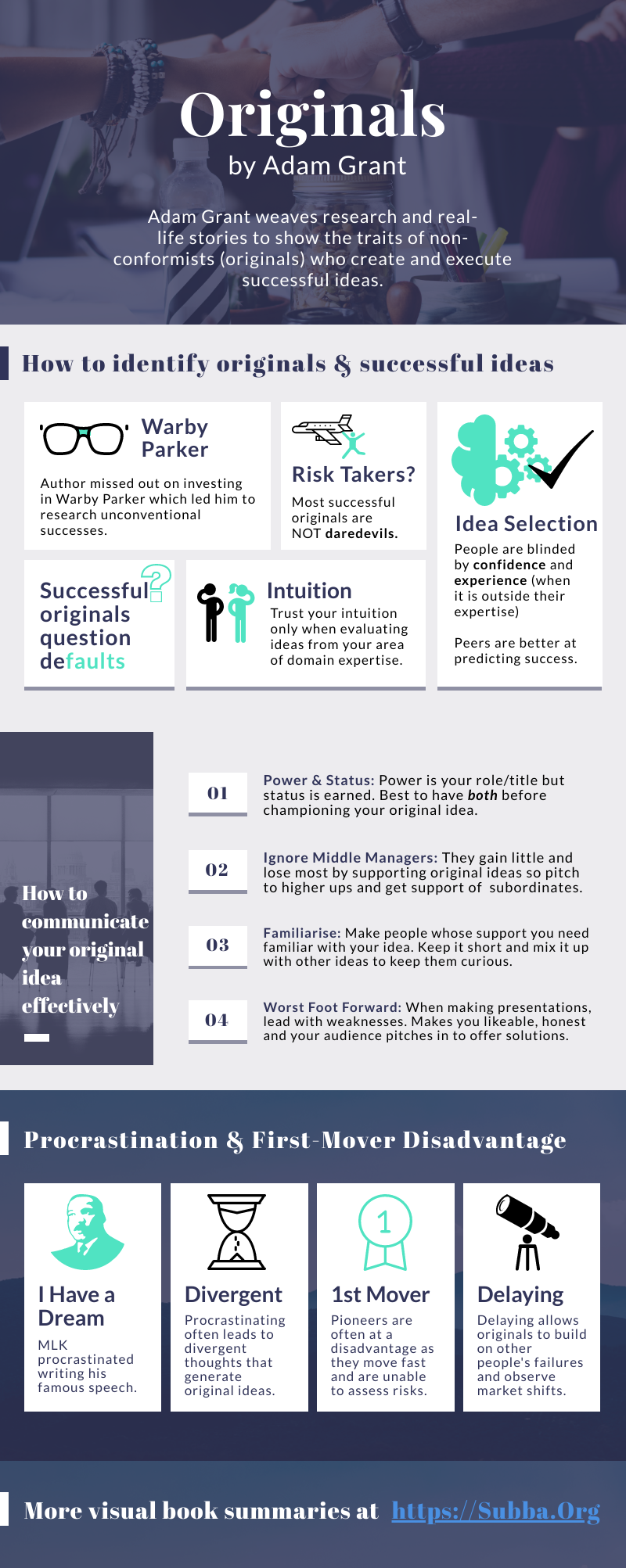This is a visual book summary of Originals by Adam Grant. Adam Grant weaves research and real-life stories to show the traits of non-conformists (originals) who create and execute successful ideas.
Visual Book Summary of Originals by Adam Grant (Infographic)

- If you liked the visual book summary then do
NOTE: Originals by Adam Grant goes deep into looking at originals and how things fit within the context of an organisation, parenting and leadership. In my summary, I have chosen just to focus on the individual: how to be more creative and champion your original ideas.
Here are some of my insights from the infographic visual book summary of Originals by Adam Grant:
How to identify originals & successful ideas
Warby Parker: Adam Grant missed out on an opportunity to invest in Warby Parker. This event led him which led him to research unconventional successes.
Successful originals question defaults!
Contrary to popular belief, originals are NOT risk takers. They always protect their downsides.
Originals have broad interests often outside their field of expertise.
Idea Selection: People are blinded by confidence and
experience (when it is outside their expertise) when selecting ideas. It turns out that peers are much better at
predicting success.
Also generating a wide array of ideas is helpful even though most of the ideas will be bad.
So trust your intuition only when evaluating ideas from your area of domain expertise.
How to communicate your original idea effectively
- Power & Status: Power is your role/title but status is earned. Best to have both before championing your original idea.
- Ignore Middle Managers: They gain little and lose most by supporting original ideas so pitch to higher ups and get support of subordinates.
- Familiarise: Make people whose support you need familiar with your idea. Keep it short and mix it up with other ideas to keep them curious.
- Worst Foot Forward: When making presentations, lead with weaknesses. Makes you likeable, honest and your audience pitches in to offer solutions.
Procrastination
Did you know that Martin Luther King, Jr. procrastinated writing his famous “I have a dream” speech.
Research shows procrastinating often leads to divergent thoughts that often generate original ideas.
First-Mover Disadvantage
Pioneers are often at a disadvantage as they move fast and are unable to assess risks.
Delaying allows originals to build on other people’s failures and observe market shifts.
What Next?
- Share it on social media:
Comment below and let us know your thoughts about the book: